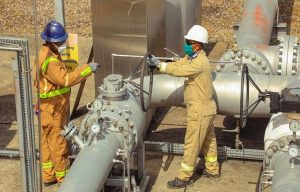By Charles Abuede
Savannah Energy, an African focused British independent energy company with operations in Nigeria, says it is cutting its planned four-year capital expenditure (capex) programme in Nigeria by 15 per cent over 2020-2023. This will see capex over the period drop from $118 million to $100 million, the company said in a statement made available to Business A.M.

According to Andrew Knott, chief executive officer of Savannah Energy CEO: “Overall, we have reduced our cost estimate for our indicative 2020–23 capital expenditure programme by around 13 per cent, versus our previous indications and, are guiding that we expect our underlying operating costs (which include maintenance expenditures) to track levels consistent with 2020 (in real terms) over the medium term. It should also be noted that our 2021 guidance excludes contributions from any new gas sales agreements or any contribution from the R3 East development project in Niger, which would be incremental to this.
“As this FY 2020 trading update demonstrates, despite the challenging headwinds, 2020 was a milestone year for Savannah Energy. It was our first full year of operating the high margin assets we acquired in Nigeria and I am delighted to report that we have significantly exceeded all of the original financial guidance we presented to the market this year, as laid out in our corporate Key Performance Indicator statement published within our FY 2019 Annual Report.
“In 2020 we grew revenues, reduced our underlying cost base and continued to provide gas contributing to over 10 per cent of Nigeria’s daily national average power generation, highlighting the resilience of the business, “ Knott noted.
Also, the amendments will have the principal work programme changes see only one gas well drilled in the 2020 to 2023 period on the Uquo field along with the acceleration of the Uquo field compression project which up to that time was assumed to commence in 2026/27 but will now be 2021/22.








